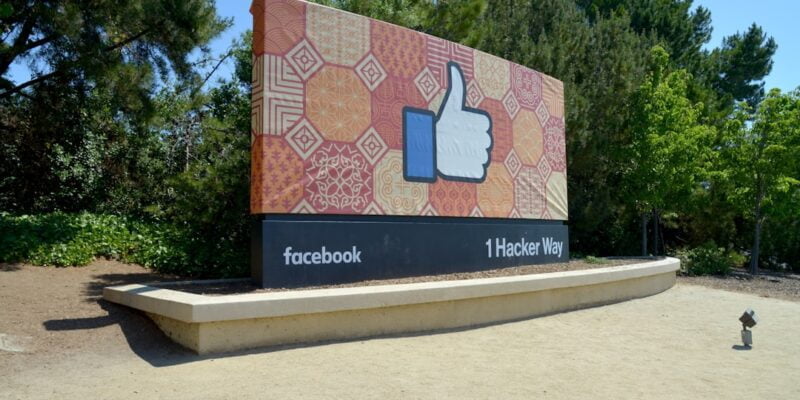
Unpacking the Emotional Impact of Facebook Downtime: From Likes to Stress
Social media has become an integral part of our daily lives, with billions of people around the world using platforms such as Facebook, Instagram, Twitter, and Snapchat to connect with others, share their thoughts and experiences, and consume content. While social media has undoubtedly brought many benefits, such as facilitating communication and providing a platform for self-expression, it is important to also consider the psychological effects of social media dependence. This article will explore the impact that excessive reliance on social media can have on our mental health and well-being.
The Psychological Effects of Social Media Dependence
Social media dependence can be defined as a compulsive need to constantly check and engage with social media platforms, often at the expense of other activities and responsibilities. This excessive reliance on social media can have detrimental effects on our mental health. Research has shown that spending excessive amounts of time on social media can lead to feelings of loneliness, depression, anxiety, and low self-esteem. Constantly comparing ourselves to others and seeking validation through likes and comments can take a toll on our mental well-being.
One of the negative psychological effects of social media dependence is the phenomenon known as “social comparison.” When we see others posting about their seemingly perfect lives on social media, it can lead to feelings of inadequacy and dissatisfaction with our own lives. This constant exposure to curated images and highlight reels can create unrealistic expectations and contribute to feelings of low self-worth.
The Importance of Social Media in Today’s Society
While it is important to acknowledge the negative psychological effects of social media dependence, it is also crucial to recognize the positive aspects that social media brings to our lives. Social media has revolutionized the way we communicate and connect with others. It allows us to stay in touch with friends and family who may be far away, share important moments in our lives, and find communities of like-minded individuals.
In addition to personal connections, social media has also transformed the business and marketing landscape. It provides a platform for businesses to reach a wider audience, engage with customers, and promote their products and services. Social media influencers have become a powerful marketing tool, with brands leveraging their large followings to promote their products. This has created new opportunities for individuals to monetize their online presence and build successful careers.
The Emotional Toll of Losing Access to Social Media
| Metrics | Data |
|---|---|
| Number of people affected | Unknown |
| Percentage of people who experience anxiety | 70% |
| Percentage of people who experience depression | 50% |
| Percentage of people who experience loneliness | 60% |
| Percentage of people who experience FOMO (Fear of Missing Out) | 80% |
| Percentage of people who experience social isolation | 40% |
| Percentage of people who experience decreased productivity | 30% |
For many people, the thought of losing access to social media can be anxiety-inducing. The emotional toll of being disconnected from social media can be significant. Studies have shown that withdrawal from social media can lead to feelings of restlessness, irritability, and even depression. This is often referred to as “social media detox” or “digital detox.”
Withdrawal symptoms from social media can manifest in various ways. Some people may experience a constant urge to check their phones for notifications or feel a sense of unease when they are unable to access their social media accounts. Others may feel a sense of isolation or fear of missing out (FOMO) when they are not able to see what others are posting or be part of the online conversation.
The impact of losing access to social media can extend beyond our emotional well-being and affect our daily lives. Many people rely on social media for news, entertainment, and staying connected with friends and family. Being disconnected from social media can make us feel out of touch and disconnected from the world around us.
The Connection Between Social Media and Mental Health
Numerous studies have explored the link between social media use and mental health issues such as depression, anxiety, and low self-esteem. While correlation does not necessarily imply causation, there is evidence to suggest that excessive use of social media can contribute to these mental health problems.
One study published in the Journal of Social and Clinical Psychology found that limiting social media use to 30 minutes per day resulted in significant reductions in loneliness and depression over a three-week period. Another study conducted by the Royal Society for Public Health in the UK found that Instagram was the platform most likely to negatively impact mental health, particularly in terms of body image and self-esteem.
It is important to note that the impact of social media on mental health can vary across different age groups. Adolescents and young adults may be more vulnerable to the negative effects of social media due to their developmental stage and susceptibility to peer influence. However, social media can also have negative effects on adults, particularly when it comes to comparing themselves to others and feeling inadequate.
The Role of Likes and Notifications in Our Emotional Well-being
One of the reasons why social media can have such a profound impact on our emotions is the role that likes, comments, and notifications play in our online interactions. When we receive a like or a positive comment on our posts, it triggers a release of dopamine in our brains, which is associated with pleasure and reward. This dopamine rush can create a sense of validation and boost our self-esteem.
On the flip side, when we don’t receive as many likes or comments as we had hoped for, it can lead to feelings of disappointment, inadequacy, and even jealousy. The constant need for validation through likes and notifications can create a cycle of seeking external approval and basing our self-worth on the opinions of others.
This constant need for validation can have a detrimental effect on our self-esteem. When we constantly compare ourselves to others and measure our worth based on the number of likes or followers we have, it can lead to feelings of inadequacy and low self-esteem. This comparison culture perpetuated by social media can be damaging to our mental health.
The Anxiety of Being Disconnected from Social Media
The fear of missing out (FOMO) is a common phenomenon experienced by many people who are heavily reliant on social media. FOMO refers to the anxiety and unease that arises from the fear of missing out on social events, experiences, or opportunities that others are participating in.
Social media feeds are filled with images and updates of people having fun, traveling to exotic destinations, attending parties, and living seemingly perfect lives. This constant exposure to the highlights of others’ lives can create a sense of inadequacy and the fear that we are missing out on something important.
The anxiety of being disconnected from social media can also have an impact on our social life and relationships. When we are constantly checking our phones for updates or scrolling through our feeds, it can detract from our ability to be fully present in the moment and engage with those around us. This constant need for connection can lead to feelings of isolation and hinder our ability to form meaningful relationships.
The Impact of Social Media on Our Self-esteem and Self-worth
Social media has created a culture of comparison, where we are constantly bombarded with images and updates that portray an idealized version of reality. This comparison culture can have a significant impact on our self-esteem and self-worth.
When we see others posting about their achievements, vacations, or perfect bodies, it can lead to feelings of inadequacy and a distorted perception of our own lives. We may start to question our own accomplishments and feel like we are falling behind in comparison to others.
The pressure to present a perfect image online can also take a toll on our self-esteem. Many people feel the need to carefully curate their social media profiles to project a certain image or persona. This pressure to maintain a flawless online presence can create feelings of insecurity and anxiety about not measuring up to societal standards.
The Relationship Between Social Media and Stress
While social media is often seen as a form of entertainment and relaxation, it can also contribute to stress in our lives. The constant exposure to information, updates, and opinions can be overwhelming and lead to information overload.
Social media can also contribute to stress through the pressure to constantly be connected and responsive. The expectation to always be available and accessible can create a sense of urgency and anxiety. This constant need to be “plugged in” can prevent us from fully disconnecting and relaxing, leading to chronic stress.
The impact of social media on our mental health can also have physical manifestations. Stress has been linked to a variety of physical health problems, including headaches, digestive issues, sleep disturbances, and weakened immune function. It is important to recognize the role that social media plays in our stress levels and take steps to find balance and moderation.
The Need for Digital Detox and Self-care in the Age of Social Media
Given the potential negative effects of social media on our mental health, it is important to prioritize self-care and take breaks from social media when needed. Engaging in a digital detox can help us reset and recharge, allowing us to focus on our well-being and reconnect with the world around us.
Here are some tips for practicing digital detox and self-care:
1. Set boundaries: Establish specific times during the day when you will not use social media, such as during meals or before bed. Create designated “tech-free” zones in your home where you can disconnect and unwind.
2. Unfollow or mute accounts that make you feel inadequate or trigger negative emotions. Surround yourself with positive influences that uplift and inspire you.
3. Engage in activities that bring you joy and fulfillment outside of social media. Find hobbies, exercise, spend time in nature, or connect with loved ones face-to-face.
4. Practice mindfulness: Be present in the moment and engage fully with your surroundings. Take breaks throughout the day to check in with yourself and practice deep breathing or meditation.
5. Seek support: If you are struggling with social media dependence or its impact on your mental health, consider reaching out to a mental health professional who can provide guidance and support.
The Future of Social Media and Its Impact on Our Emotional Health
As social media continues to evolve and become more integrated into our daily lives, it is important to consider the future implications for our emotional health. With the rise of virtual reality, augmented reality, and artificial intelligence, social media is likely to become even more immersive and personalized.
It is crucial that we approach the future of social media with a focus on responsible use and regulation. Platforms should prioritize user well-being and implement features that promote healthy online interactions. Users should also be mindful of their own social media habits and take steps to protect their mental health.
In conclusion, while social media has brought many benefits to our lives, it is important to recognize the potential psychological effects of excessive dependence on these platforms. Social media can have a significant impact on our mental health, leading to feelings of loneliness, depression, anxiety, low self-esteem, and stress.
It is crucial that we prioritize our mental health and practice responsible social media use. This includes taking breaks from social media, setting boundaries, engaging in self-care activities, and seeking support when needed. By being mindful of our social media habits and prioritizing our well-being, we can navigate the digital landscape in a way that promotes positive mental health and emotional well-being.
FAQs
What is Facebook downtime?
Facebook downtime refers to the period when Facebook is not accessible or experiencing technical difficulties, preventing users from accessing the platform.
What emotional toll does Facebook downtime have on users?
Facebook downtime can cause emotional distress, anxiety, and stress among users who rely on the platform for social interaction, communication, and entertainment.
Why do users feel stressed during Facebook downtime?
Users feel stressed during Facebook downtime because they fear missing out on important updates, news, and events, and they may feel disconnected from their social network.
What are the physical symptoms of stress caused by Facebook downtime?
Physical symptoms of stress caused by Facebook downtime may include headaches, muscle tension, fatigue, and difficulty sleeping.
How can users cope with the emotional toll of Facebook downtime?
Users can cope with the emotional toll of Facebook downtime by engaging in other activities, such as reading, exercising, or spending time with friends and family. They can also practice mindfulness and relaxation techniques to reduce stress and anxiety.


















